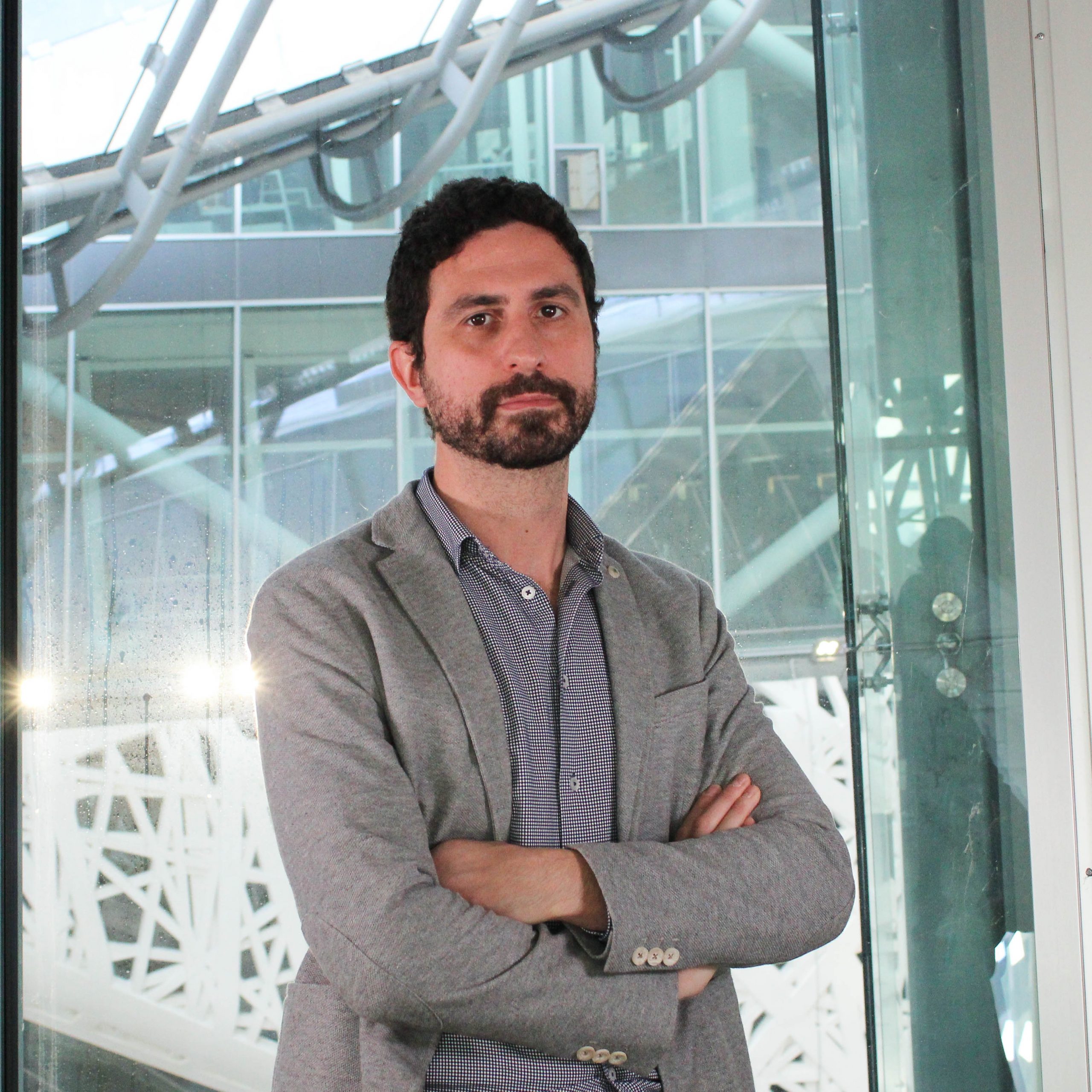
Andrea Sottoriva
- Head of Computational Biology Research Centre, Computational biology
- Research Group Leader, Sottoriva Group
Andrea Sottoriva is the Head of the Computational Biology Research Centre at Human Technopole.
Andrea’s research focusses on the development of new computational approaches to measure cancer evolution in patients, with the aim of predicting the future course of the disease. Andrea’s lab also integrates patient-derived experimental models and multiomics data, with evolutionary methods to design new treatment strategies that aim at preventing and controlling drug resistance.
After graduating in Computer Science at the University of Bologna in 2006, he obtained a master in Computational Sciences from the University of Amsterdam in 2008. During his studies, he worked in neutrino physics at the Department of Physics of the University of Bologna and at the Institute for Nuclear and High Energy Physics (NIKHEF) in the Netherlands as a research assistant.
In 2012 he completed his PhD in Computational Biology from the University of Cambridge, where he worked at the Cancer Research UK research centre.
After postdoctoral work at the University of Southern California, he started his lab at the Institute of Cancer Research in London in 2013, where in 2018 he became the Deputy Director of the Centre for Evolution and Cancer and then the Director in 2020.
He authored several studies published in prestigious scientific journals, including Science, Nature, Nature Genetics and Cancer Discovery. Among his articles are “The co-evolution of the genome and epigenome in colorectal cancer” (Nature, 2022), “Phenotypic plasticity and genetic control in colorectal cancer evolution” (Nature, 2022), “Subclonal reconstruction of tumors by using machine learning and population genetics” (Nature Genetics, 2020), “Detecting repeated cancer evolution from multi-region tumor sequencing data” (Nature Methods, 2018), “Longitudinal liquid biopsy and mathematical modelling of clonal evolution forecast waiting time to treatment failure in a phase II colorectal cancer clinical trial” (Cancer Discovery, 2018), and “Patient-derived organoids model treatment response of metastatic gastrointestinal cancers” (Science, 2018).
In 2016 he was awarded the Cancer Research UK Future Leaders in Cancer Research prize.
Contacts
Follow on
Selected Publications
-
06/2018 - Nature Genetics
Quantification of subclonal selection in cancer from bulk sequencing data
Subclonal architectures are prevalent across cancer types. However, the temporal evolutionary dynamics that produce tumor subclones remain unknown. Here we measure clone dynamics in human cancers by using computational modeling of subclonal selection and theoretical population genetics applied to high-throughput sequencing data. Our method determined the detectable subclonal architecture of tumor samples and simultaneously measured […]
-
05/2018 - Nature Genetics
Quantification of subclonal selection in cancer from bulk sequencing data
Subclonal architectures are prevalent across cancer types. However, the temporal evolutionary dynamics that produce tumor subclones remain unknown. Here we measure clone dynamics in human cancers by using computational modeling of subclonal selection and theoretical population genetics applied to high-throughput sequencing data. Our method determined the detectable subclonal architecture of tumor samples and simultaneously measured […]
-
02/2018 - Science
Patient-derived organoids model treatment response of metastatic gastrointestinal cancers
Patient-derived organoids (PDOs) have recently emerged as robust preclinical models; however, their potential to predict clinical outcomes in patients has remained unclear. We report on a living biobank of PDOs from metastatic, heavily pretreated colorectal and gastroesophageal cancer patients recruited in phase 1/2 clinical trials. Phenotypic and genotypic profiling of PDOs showed a high degree […]
-
01/2016 - Nature Genetics
Identification of neutral tumor evolution across cancer types
Despite extraordinary efforts to profile cancer genomes, interpreting the vast amount of genomic data in the light of cancer evolution remains challenging. Here we demonstrate that neutral tumor evolution results in a power-law distribution of the mutant allele frequencies reported by next-generation sequencing of tumor bulk samples. We find that the neutral power law fits […]